Recap: Final Convening for the Los Angeles Housing Research Library
There are more than 57,000 people who are housing insecure in Los Angeles. Tent cities are all throughout the City. Homeless can be found in public parks, libraries and in the subway. It’s a constant glaring disparity of wealth and poor on display in Los Angeles. Housing has gotten so expensive in LA that even people who have jobs can find themselves living on the streets. To solve this problem, residents voted in November 2016 and in March 2017 to raise taxes to fund a multibillion-dollar, 10-year program to provide housing and social services for the homeless (Measure H and HHH). The housing insecurity crisis in LA is very complex with lots of factors but to ensure the funds designated and the great ideas that have been formulated by a variety of groups and government officials to solve the problem are not wasted, Helmi Hisserich came up with an idea.
On April 26th, the LA Local Initiatives Support Corporation (LISC) and Housing & Community Investment Department of Los Angeles (HCIDLA) brought together a think tank to tackle the issue of homelessness. Among those in the room were Rushmore Cervantes, Sean Spear, Matthew Glesne, Gerald Gubatan, Arturo Chavez, Jonathan Woetzel, Michael Lens, Richard Green, Carla Casilli of the California Community Foundation, Richard K. Green of the University of Southern California, Kren Malone of the Los Angeles Public Library, Adam Murray of Inner City Law, Will Nicholas from LA County, Aaron Gross from the LA Department of Water and Power, and KeAndra Dodds of Enterprise Community Partners.
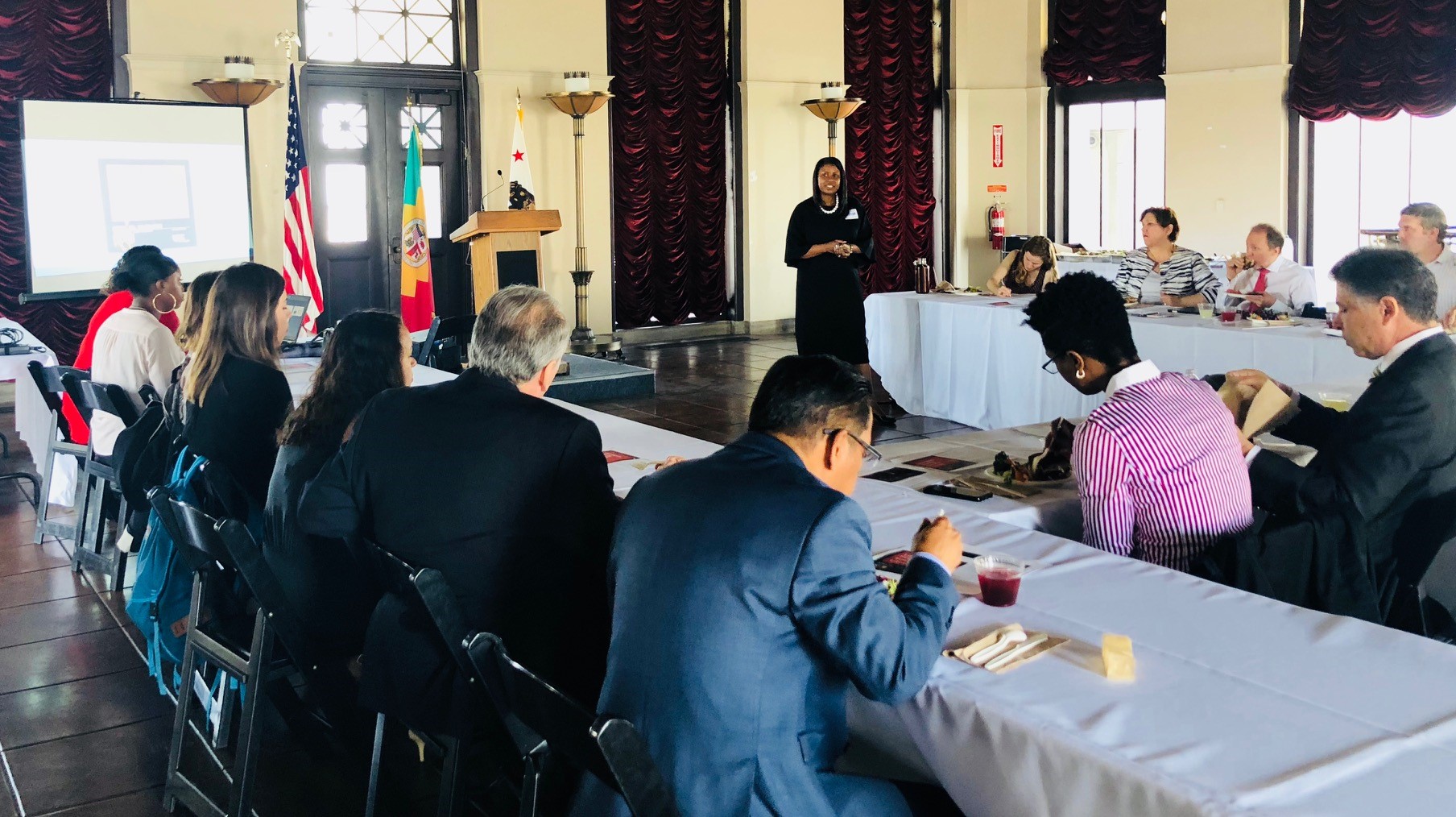
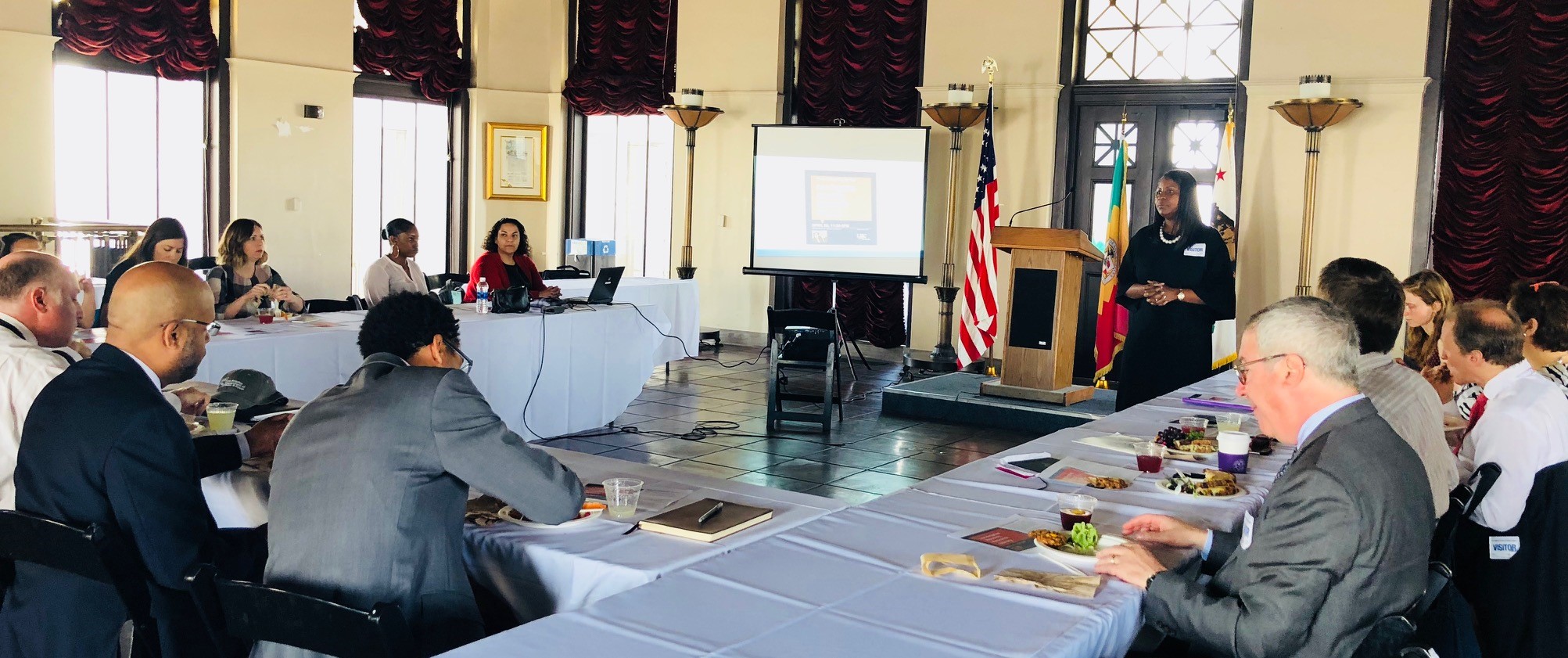
It was sponsored by Helmi Hisserich and LA LISC Executive Director, Tunua Thrash-Ntuk, hosted the event at City Hall in the Thomas Bradley Room.
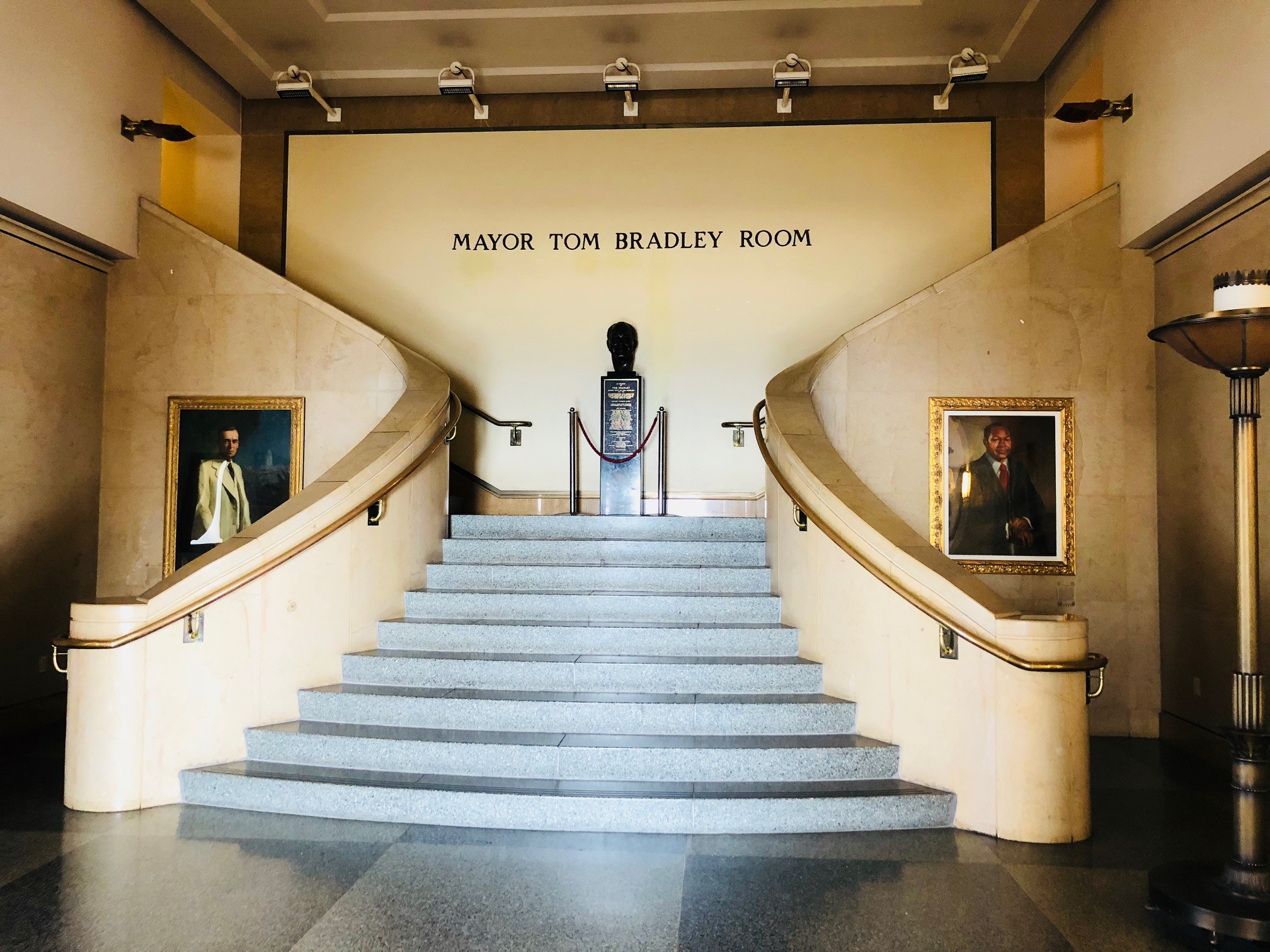
Helmi is the Housing Director of Housing Strategies & Services Division of HCIDLA. She’s seen how multiple public agencies work on housing and homelessness but don’t effectively pool their knowledge to move problem solving. She wants to shift the way that city departments working on housing and homelessness communicate with one another, elected officials, community and other partners by creating a platform for open access to information.
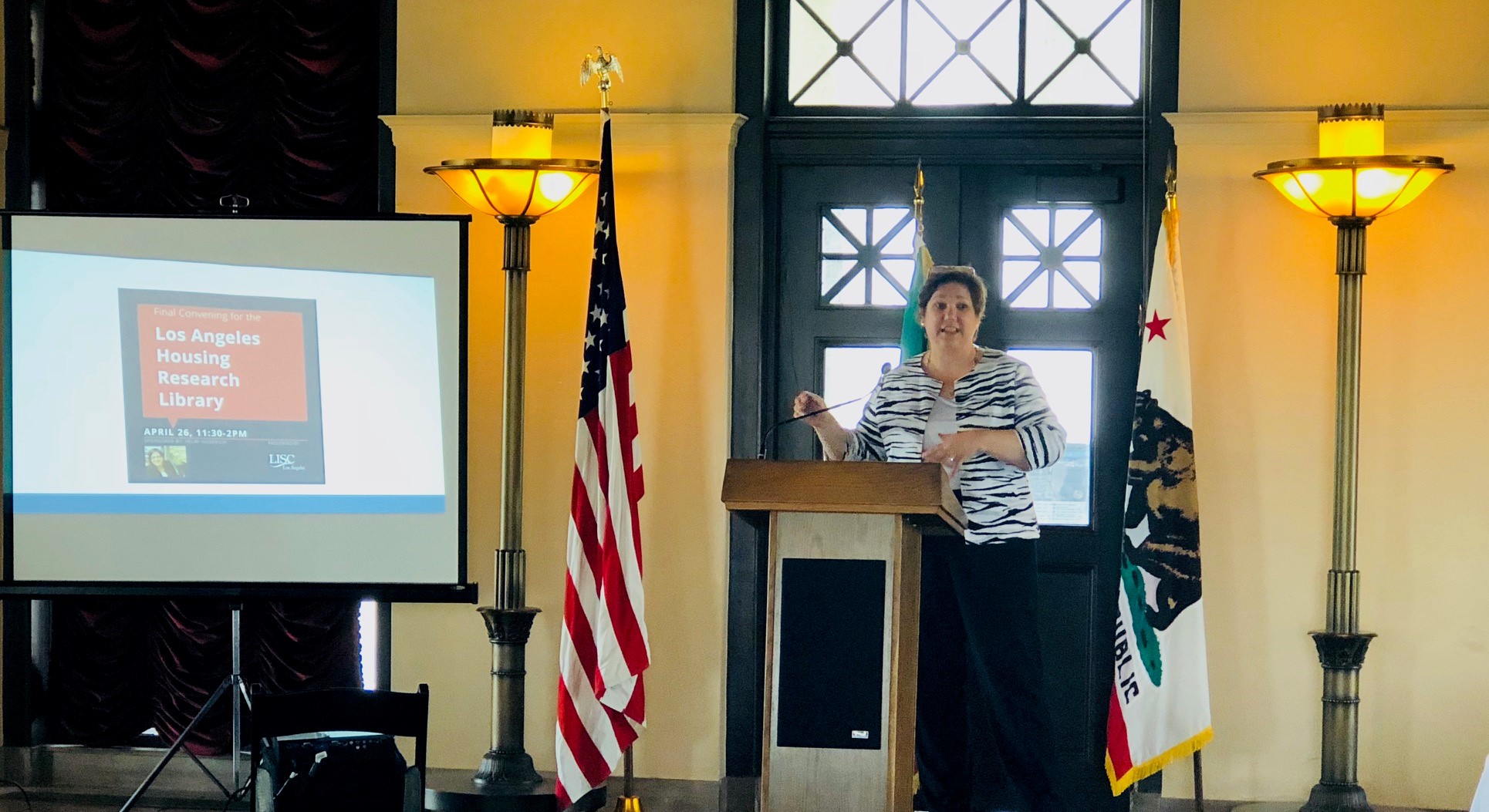
This idea birthed this meeting and big data was a huge part of the conversation. Speakers explored how big data can help achieve great common social goals in Los Angeles.
Vinhcent Le with The Greenlining Institute spoke on the breadth of data that is being used by advertisers. One of the shocking points he made was that the Princeton Review uses data to sell one of their courses to Asians at a higher price than non-Asians regardless of the neighborhoods in which they live. Vinhcent made the point that “big data gives advertisers the ability to seek out the most vulnerable prospects to exploit and entice them with scams and misleading offers,” i.e. predatory lenders. He ended on a positive note with comments on how data can be used for good. For example, nonprofits can take advantage of the tools to enhance their marketing efforts and colleges finding students most at risk of dropping out can connect them to services.
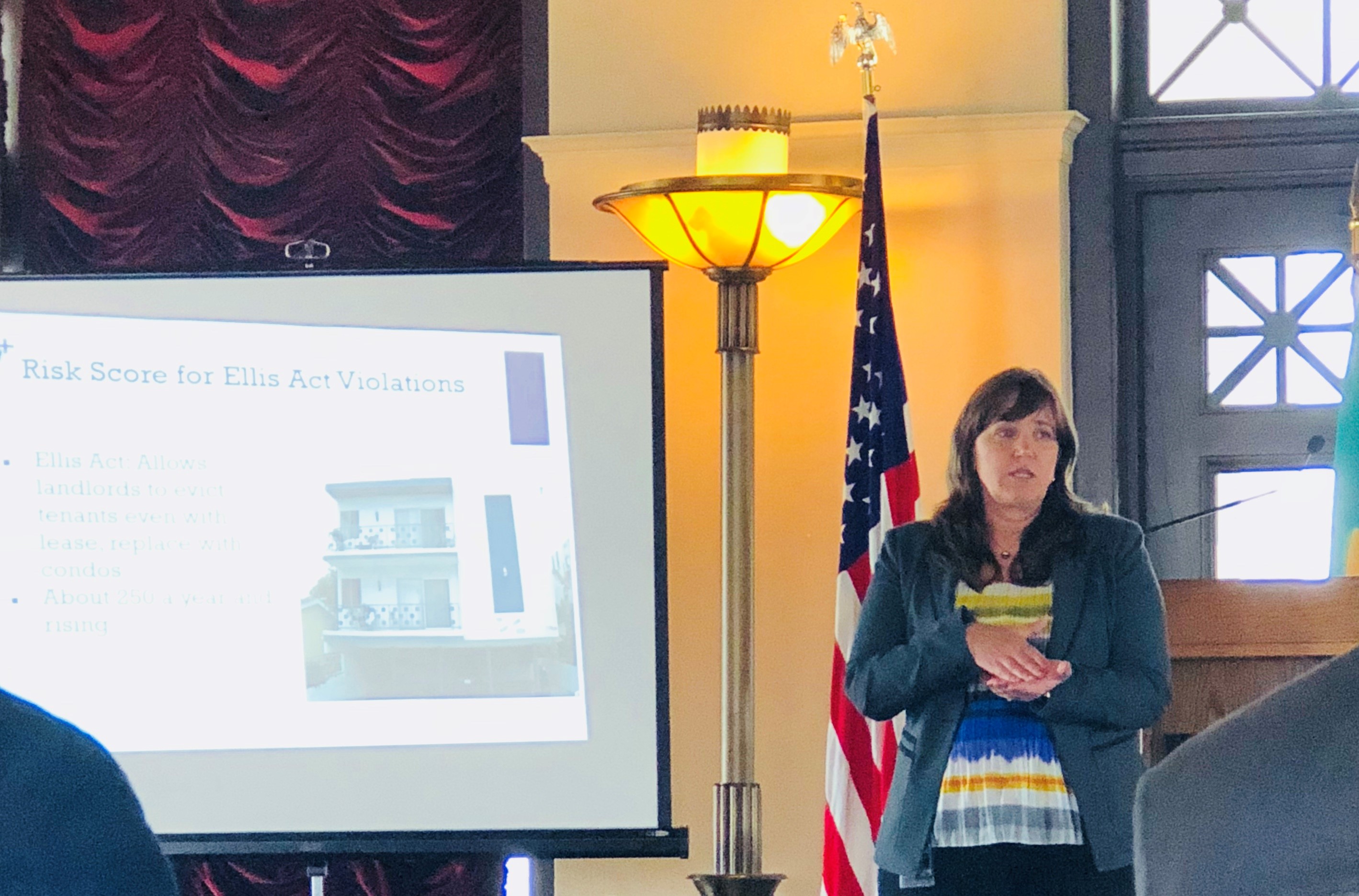
Jeanne Holm, Senior Tech Advisor to Mayor Garcetti and Deputy CIO for the City of Los Angeles, followed Vinhcent speaking on how the City is using data to help combat homelessness. Jeanne highlighted the high risk individuals dealing with housing inseuirty in LA, including:
- Individuals out of foster care
- Individuals with a sick family member
- Individuals with no social connections
Particularly surprising was to hear that only 58% of the residents in Watts in South LA have internet access at home. The students in that area are doing school work on their family members’ cell phones and going to a local McDonald’s for WiFi. This is not something one would expect in a big city in a first world country. While the City faces challenges with digital literacy, access and connectivity in some areas, there are programs that have been established to address these issues.
Lastly, Helmi spoke on the lack of affordable housing and how it really is a global problem due to rapid urbanization. Los Angeles specifically has a deficit of over 200,000 units and its projected to grow to 350,000 units by 2025.
Her solution to solve this problem is to create a virtual think tank on housing (appropriately named the LA Housing Research Library (LAHRL)) that will harness big data for social good and house it within our public library system. The public library is neutral so regardless of governmental changes, the information would be safely archived for future reference. Other municipalities could replicate this and LA would be the leader in this effort, creating and executing on this model.
Helmi conducted over 100 interviews with participants in academia, housing developers, community advocates, City Council staff, mayoral aides, housing staff, and planning staff. She was able to compile the information she gathered to create a plan that could benefit everyone.
The LAHRL will:
- use geographic information system (GIS) technology to make emergent data sources accessible to researchers, policymakers, and community members
- collaborate with City departments, local universities & research centers to probe housing issues in Los Angeles and identify opportunities for innovation
- collect and verify housing data that are relevant, accurate, timely, and accessible to those who want or need it
- use social media tools to host talks with LA’s most innovative housing leaders
- host conferences on cutting-edge research-policy work in the region
- partner with the Housing & Community Investment Department to foster innovation through targeted investment in housing strategies that do not fit within traditional affordable housing finance programs
This is a brilliant idea and we’re looking forward to see where this conversation leads.
What do you think? What do you feel are the best tools we have at our disposal to tackle homelessness in Los Angeles? Tweet us at @LISC_LA or e-mail us at LALISC@lisc.org. We want to hear from you.